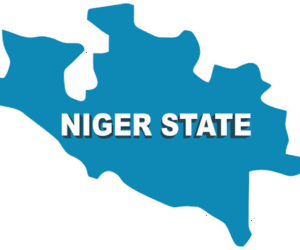On July 6, 2025, the federal government announced that it had rolled out an amnesty programme for foreigners living in Nigeria with expired visas or other immigration documents.
The initiative, which began in May, offers ‘overstayers’ a chance to regularise their stay or exit the country voluntarily without facing penalties – in what was described as a major step towards strengthening Nigeria’s new visa regime and tightening migration management.
The programme, officially called the Expired Visa Initiative, commenced on May 1, 2025, and will run until September 30, 2025.
It is being implemented by the Ministry of Interior in partnership with the Nigeria Immigration Service (NIS).
The initiative targets foreign nationals who have overstayed their visa duration or violated the terms of their immigration status.
Those covered include: individuals with expired visas on arrival, holders of expired single-entry or multiple-entry visas, and expatriates with Combined Expatriate Residence Permit and Aliens Cards (CERPACs) that expired more than 30 days without renewal.
Applications are to be submitted through the official portal, amnesty.immigration.gov.ng.
The process begins with registration, where applicants provide personal details, passport information, and the reasons for seeking amnesty.
Read also: Presidential Amnesty Programme – A time for more understanding, more purpose
They are then required to upload all relevant identification documents, including copies of the expired visas, before selecting whether they wish to regularise their residency in Nigeria or exit the country voluntarily.
Once submitted, confirmation notices are generated, and applicants can track the progress of their requests online.
For further assistance, the federal government has set up a dedicated support team which can be reached via [email protected].
According to the Nigeria Immigration Service (NIS), the temporary relief is aimed at encouraging lawful migration, improving the accuracy of foreign resident data, and enhancing national security.
For businesses that employ expatriates, the scheme provides a straightforward path to compliance, helping to reduce the risk of fines, deportation, or disruptions to business operations.
However, the agency has emphasised that the amnesty window is only temporary.
Foreigners who fail to take advantage of it before the September 30 deadline risk facing enforcement measures, which may include monetary fines and deportation.
The federal government stressed that the programme underscores the government’s commitment to a secure, transparent, and predictable immigration system, while also signaling to investors and international partners that Nigeria is serious about effective migration management.
Countries offer visa overstay amnesty programmes to improve national security and migration management by bringing undocumented residents into the formal system, which allows for better tracking and compliance with immigration laws.
These initiatives also provide a chance for ‘overstayers’ to regularise their status, potentially benefit from easier entry/exit, and avoid harsh penalties like fines and re-entry bans, ultimately promoting transparency and a more controlled immigration environment.
The NIS said it has provided additional details on its official website at www.immigration.gov.ng.









